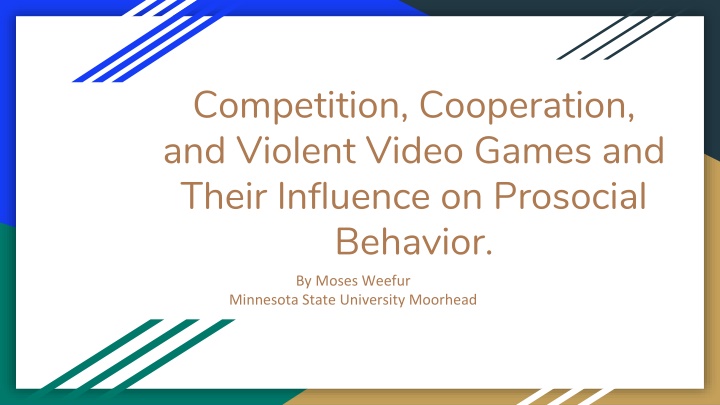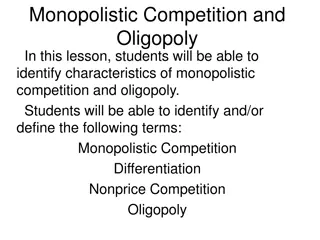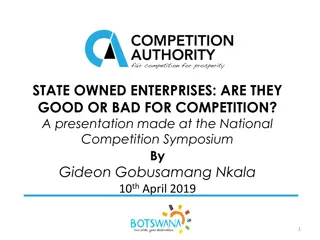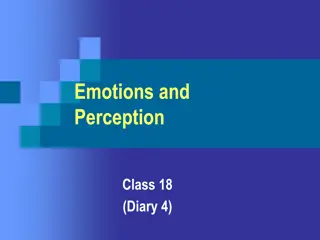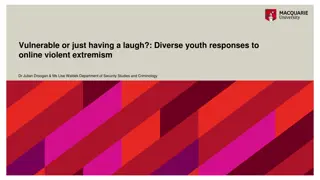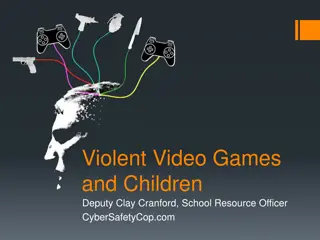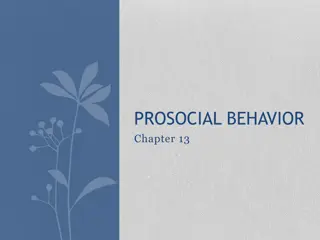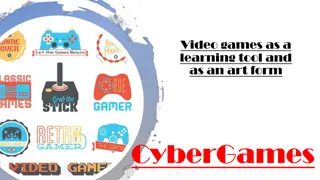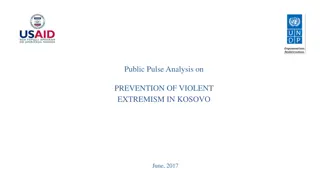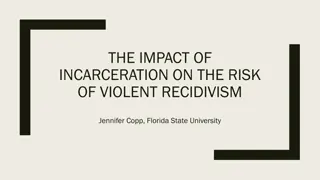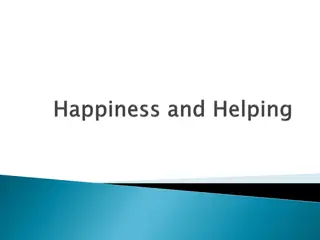Influence of Competition, Cooperation, and Violent Video Games on Prosocial Behavior
This study explores the impact of competition, cooperation, and violent video games on prosocial behavior. The research investigates the relationship between different types of video games and their influence on aggression and bias. Using a 2 by 2 factorial design, voluntary students from MSUM participated in the study, assessing their prosocial behavior scores based on competitiveness, cooperativeness, and violence levels in games. The hypothesis suggests that the non-violent cooperative group would score higher overall.
Download Presentation

Please find below an Image/Link to download the presentation.
The content on the website is provided AS IS for your information and personal use only. It may not be sold, licensed, or shared on other websites without obtaining consent from the author.If you encounter any issues during the download, it is possible that the publisher has removed the file from their server.
You are allowed to download the files provided on this website for personal or commercial use, subject to the condition that they are used lawfully. All files are the property of their respective owners.
The content on the website is provided AS IS for your information and personal use only. It may not be sold, licensed, or shared on other websites without obtaining consent from the author.
E N D
Presentation Transcript
Competition, Cooperation, and Violent Video Games and Their Influence on Prosocial Behavior. By Moses Weefur Minnesota State University Moorhead
Background Studies links violent video games to increased aggression Studies links competitive video games to aggression A negative bias against video games has developed
Method Participants: Voluntary MSUM Students Design: 2 by 2 Factorial in between subjects Design Materials: 7 point Likert Scale, Street Fighter 4, NBA 2k17, Resident Evil 5, and Portal 2
Independent Variables and Dependent Variable Independent Variables: competitiveness/cooperativeness and violence Dependent Variable: Prosocial Behavioral Score
Hypothesis The hypothesis for this experiment is that the non-violent cooperative group will have higher overall score than the other groups.
